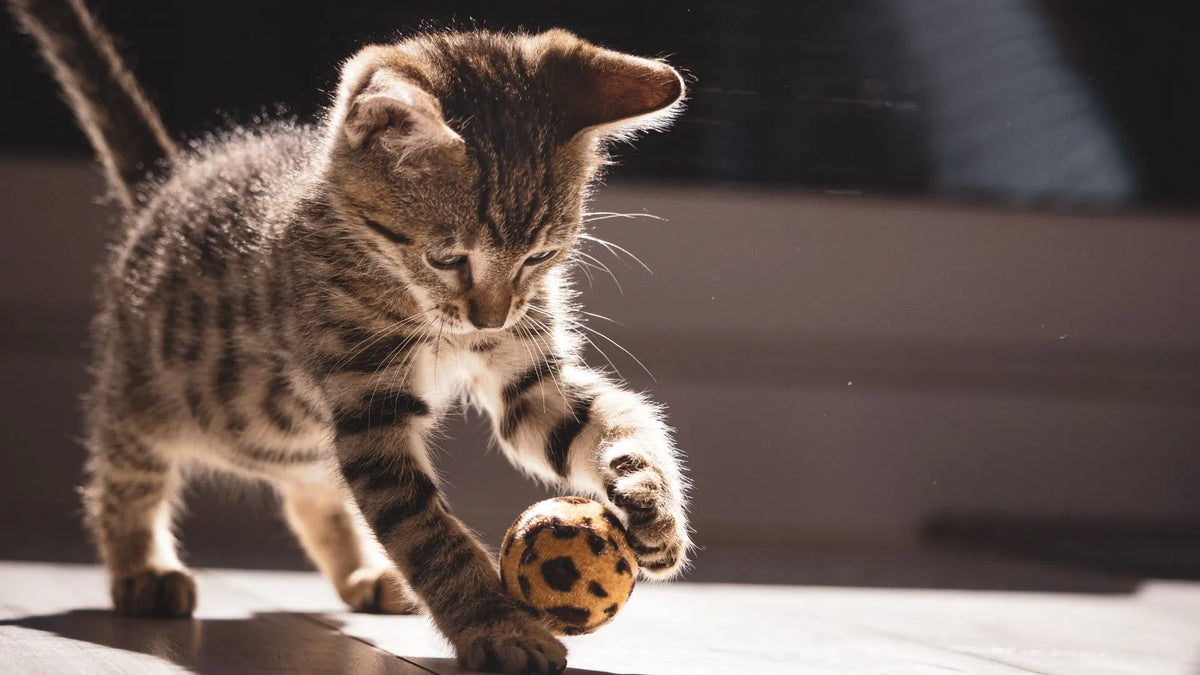In 24 cities

Why Your Cat's Nutrition is the Secret to a Happy, Healthy Life
|
|
Time to read 6 min
Get product availability and delivery timelines based on your location.
Are you sure you want to delete this address?
Help us ensure a smooth delivery
Help us ensure a smooth delivery
SIZE GUIDE
|
|
Time to read 6 min
As a loving cat parent, you might find yourself gazing into your kitty's adorable eyes, wondering what exactly makes them tick. While every cat has its own preferences, understanding their dietary needs and favorite foods is essential for keeping them healthy and happy. This guide will delve into the best foods for your feline friend, ensuring they enjoy every meal while meeting their nutritional needs.
Cats are unique creatures, and understanding their nutritional needs is essential for their overall health and well-being. Here are several reasons why nutrition matters for your feline friend:
Cats are obligate carnivores, meaning their bodies are biologically designed to thrive on animal-based proteins. Unlike dogs, which are omnivores, cats require a diet high in protein to meet their energy needs and support bodily functions. This means that a significant portion of their diet should come from meat.
Certain nutrients are vital for cats and are primarily found in animal products. These include:
A well-balanced diet helps prevent obesity in cats, which can lead to various health issues, including diabetes and joint problems. Feeding high-quality, nutrient-dense foods ensures your cat maintains a healthy weight.
Nutrition can impact dental health. Crunchy cat food can help reduce plaque and tartar buildup, while treats can also assist in maintaining oral hygiene.
Proper nutrition can significantly influence your cat's lifespan and quality of life. Cats that receive balanced diets are generally more active, have healthier coats, and are less prone to illness.
Meat is at the heart of a cat's diet. Here are some of the top meats that cats love and the nutritional benefits they provide:
While cats primarily thrive on meat, some vegetables can be a healthy, occasional treat. Here are some cat-friendly veggies to consider:
Fruits are not a necessity in a cat's diet, but some cats enjoy them as occasional treats. Here are some cat-friendly fruits:
Digestive Benefits: As mentioned earlier, pumpkin can be beneficial for digestion, making it a versatile food choice.
While there are many cat-friendly foods, some human foods can be dangerous for your feline friend. Here’s a list of foods to avoid:
Toxic to Cats: Chocolate contains theobromine, which is toxic to cats and can cause severe health issues.
Blood Cell Damage: Both can cause gastrointestinal upset and damage red blood cells, leading to anemia.
Kidney Failure Risk: Even small amounts can lead to kidney failure in cats.
Stimulant Effects: Caffeine from coffee or tea can lead to heart problems and restlessness.
Lactose Intolerance: Many cats are lactose intolerant, and dairy can cause gastrointestinal upset.
Bacteria Risk: Raw foods can carry harmful bacteria, risking your cat's health.
Toxic Sweetener: Commonly found in sugar-free products, xylitol can cause rapid insulin release, leading to hypoglycemia.
Feeding your cat human food can be a fun way to bond, but it's essential to do so safely. Here are some tips:
Treats should only make up a small portion of your cat's overall diet. Overfeeding can lead to obesity and health problems.
When introducing new foods, do so gradually to monitor for any adverse reactions.
Always observe your cat after introducing new human foods. Signs of gastrointestinal upset include vomiting, diarrhea, or changes in appetite.
Ensure that any treats you offer complement your cat's regular diet rather than replace it. Nutrient-rich treats are better than empty calories.
Utilize human food as a high-value treat for training or as a reward for good behavior.
Always consult your veterinarian if you have questions about what foods are safe for your cat, especially if they have existing health conditions.
Understanding your cat's favorite foods and dietary needs is crucial for their health and happiness. By incorporating a variety of safe, nutritious foods into their diet while being mindful of their preferences, you can create a balanced meal plan that keeps your feline friend purring with joy.
Remember to consult your veterinarian for personalized feeding advice, especially if your cat has any underlying health issues. Happy feeding, and may your kitty enjoy every bite!
1. Can I feed my cat table scraps?
It's best to avoid giving your cat table scraps regularly, as many human foods can be unhealthy or even toxic to cats. Stick to safe treats in moderation.
2. Are there any fruits I should avoid?
Yes, avoid grapes, raisins, and citrus fruits, as they can be harmful to cats.
3. How do I know if my cat is allergic to a food?
Watch for symptoms like vomiting, diarrhea, or skin irritations. Consult your vet if you notice any adverse reactions.
4. Can I feed my cat raw meat?
Feeding raw meat can pose health risks due to bacteria. Always cook meat thoroughly to ensure it's safe for your cat.
5. What is the best way to introduce new foods?
Introduce new foods gradually and in small amounts to see how your cat reacts before incorporating them into their regular diet.
Team Supertails
2 item in cart
₹10,360

